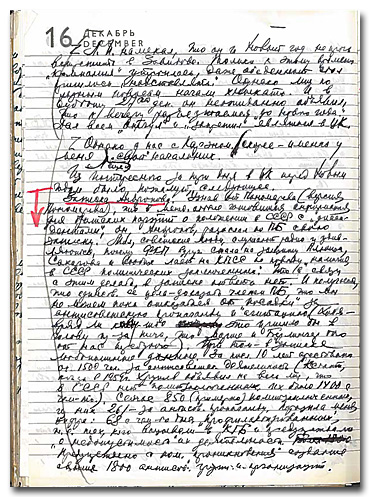Compliance is the Best Gift Agencies Can Give FOIA for its 50th Anniversary: FRINFORMSUM 5/26/2016
Too many agencies are still under-performing on FOIA in the weeks leading up to the law’s 50th anniversary. For its part, the Commerce Department is refusing to release certain records under the FOIA, instead charging reporter David Yanofsky $173,775 for two databases because “it only gives that information to people and companies that pay for the privilege.” The databases are the only comprehensive records on who enters the US; one database is on anonymous immigration records and the other statistics about international air travelers. Yanofsky says “a representative for the International Trade Administration initially told him that the DOC bureau ‘did not want to release the records to [him] because it wanted to protect the revenue the data generated.’” Yanofksy correctly argues, however, that “Just because there may be a market for this information shouldn’t make it exempt from public disclosure.”
The National Institute of Health told FOIA professionals listening to its May 24 “All About Grants” podcast that FOIA requests must be “very specific” – a problematic misinterpretation of the statute’s actual requirement that the request be “reasonably described.” The NIH FOIA office would do well to revisit the Department of Justice’s Office of Information Policy procedural guidance, which clearly states ‘the fact that a FOIA request is very broad or “burdensome” in its magnitude does not, in and of itself, entitle an agency to deny that request on the basis that it does not “reasonably describe” the records sought. The key factor is the ability of an agency’s staff to reasonably ascertain exactly which records are being requested and then locate them.’
The State Department inspector general yesterday delivered a report to Congress rebuking Clinton’s use of personal email. The bottom line for all federal employees as Clinton seeks to wrap-up the Democratic nomination is that flouting the FOIA and federal records requirements is bad for future career goals. The IG findings echo those made by Nate Jones and I more than a year ago; namely that when Clinton used a personal email and server, there was a “law on the books at the time (the Federal Records Act), federal regulations on the books at the time (36 CFR 1236.22), and NARA guidance which the State Department received (NARA Bulletin 2011-03) that should have prevented Clinton’s actions.” The report also makes clear that Clinton, who was turned down for a National Security Agency Blackberry and did not want to carry more than one device, “worried that personal emails could be publicly released under the Freedom of Information Act.”
A FOIA request for the Attorney General’s written responses to questions from the House Judiciary Committee following a June 7, 2012, hearing shows that “A definitive accounting of the number of lawsuits in which the U.S. Government has invoked the state secrets privilege cannot be provided because some of those cases may be too sensitive to acknowledge or disclose.” The DOJ did note that the Attorney General had invoked state secrets privilege in six known cases between 2009 and 2013 – including Gen. Petraeus’s use of the privilege while head of CIA in an employee discrimination case, which is not widely considered a state secrets case.

Which fees can be charged by requester category if the government misses its deadline (and does not proclaim your request as “unusual”)?
The D.C. Circuit Court of Appeals has ruled that students are entitled to the same FOIA fee considerations as teachers. In his ruling, Appeals Court Judge Brett Kavanaugh said, “It would be a strange reading of this broad and general statutory language – which draws no distinction between teachers and students – to exempt teachers from paying full FOIA fees but to force students with presumably fewer financial means to pay full freight.” For more on a thorough examination of FOIA fee categories and fee issues, see Nate Jones’s article on “Unnecessary Freedom of Information Act Fees.”

Timothy Foster used Georgia Records Act to uncover prosecution records showing racial bias in jury selection. AP Photo
Timothy Foster, a Georgia man convicted of murder after a 1987 trial and sentenced to death, used the Georgia Open Records Act to obtain documents “showing that prosecutors were keeping track of which jurors were African-American and that they seemed to be trying to minimize the number of blacks on the jury.” The Supreme Court ruled 7-1 (Justice Clarence Thomas was the only dissenter) that prosecutors violated the Constitution in allowing racial considerations “taint” jury selection. SCOTUS’s ruling does not overturn the death sentence, but it compels the Georgia Supreme Court to revisit its ruling denying Foster relief. Politico’s Josh Gerstein notes that, “It is unclear how broad an impact Monday’s ruling will have, in part because state public records laws vary and most inmates seem unlikely to be able to obtain copies of prosecutors’ files. In addition, defense attorneys suspect that many prosecutors are careful not to make written notes that could later support a claim that a juror was struck on the basis of race.”
On Friday President Obama will visit Hiroshima and will speak on the US dropping an atomic bomb on the city at the end of World War II (he will not, however, be visiting Nagasaki). The National Security Archive’s collection “The Atomic Bomb and the End of World War II” — which has been updated three times and now houses nearly 100 declassified documents — addresses, among other issues, the Trinity Test, the first nuclear strikes and their impact, and President Eisenhower’s early misgivings about nuclear use. As the Nuclear Vault’s director William Burr says, the unmatched collection “can help readers to make up their own minds about long-standing controversies such as whether the first use of atomic weapons was justified, whether President Harry S. Truman had alternatives to atomic attacks for ending the war, and what the impact of the Soviet declaration of war on Japan was.”
Matthew Aid recently highlighted the release of two National Security Agency collections on World War II. The first is nine volumes on the history of AXIS SIGINT operations during WWII, and the second is more than 29,000 pages of “material related to the World War II-era Target Intelligence Committee (TICOM).” Thanks to Matthew for pointing out these great resources.
British Columbia has announced it will post every Freedom of Information request online – including the name of the requester and the substance of their request. The plan is causing some concern among privacy activists and journalists, who are wary that such a policy will cost them “scoops,” but the controversy overshadows the fact that BC has yet to post any actual released documents online. In the US this unofficially happens with FOIA logs, which are lists agencies maintain of all the FOIA requests they receive and are published online, and the US FOIA has no expectation of requester privacy. The National Security Archive strongly supports posting FOIA releases online – and perhaps the best method that addresses both journalistic and FOIA advocates concerns’ is to require the documents be posted online, but not immediately (currently, the Department of State posts FOIA’d documents quarterly).
The Anatoly S. Chernyaev diary for 1976 – published in English for the first time this week by the National Security Archive – provides, among other insights, an inside look at the Central Committee and close-ups of Brezhnev and the Soviet system. Read the 1976 diary, as well as previous volumes, here.
On Friday, May 27th the Archive’s Kate Doyle will chair a Latin American Studies Association “Presidential Session” on “Mexico After Ayotzinapa: A Conversation with the International Investigatory Panel.” The investigatory panel was appointed by the Inter-American Commission on Human Rights to investigate the Ayotzinapa student abductions and concluded there was a massive cover-up by the Mexican government. The LASA session will offer an opportunity to converse directly with two members of the Ayotzinapa panel, both with long trajectories in the field of human rights in Latin America. It will be held from 4:15 to 5:45 PM in the Rhinelander Gallery South. Please note that attendance is limited to LASA members attending the conference (although members of the press can attend for free if they present credentials).
This week’s #tbt pick is chosen with the recent confirmation of the death of Taliban leader Akhtar Mohammad Mansour in a drone strike in mind. This week’s pick is a declassified 2002 State Department cable on terrorism financing that notes Mansour was Afghanistan’s former Minister of Civil Aviation and nicknamed the “King of Planes” for his control of all military flights. The cable is one of 17 declassified documents found in the National Security Archive’s “Taliban Biography” – which charts the structure and leadership of the group from 1996 through 2002.
Want to stay on top of the latest FOIA news? Click here to sign up for our weekly FRINFORMSUM email newsletter.
Happy FOIA-ing!
Comments are closed.




typo on federal records act bit you said: “(36 CFR 1263.22), ”
You meant “36 CFR 1236.22”